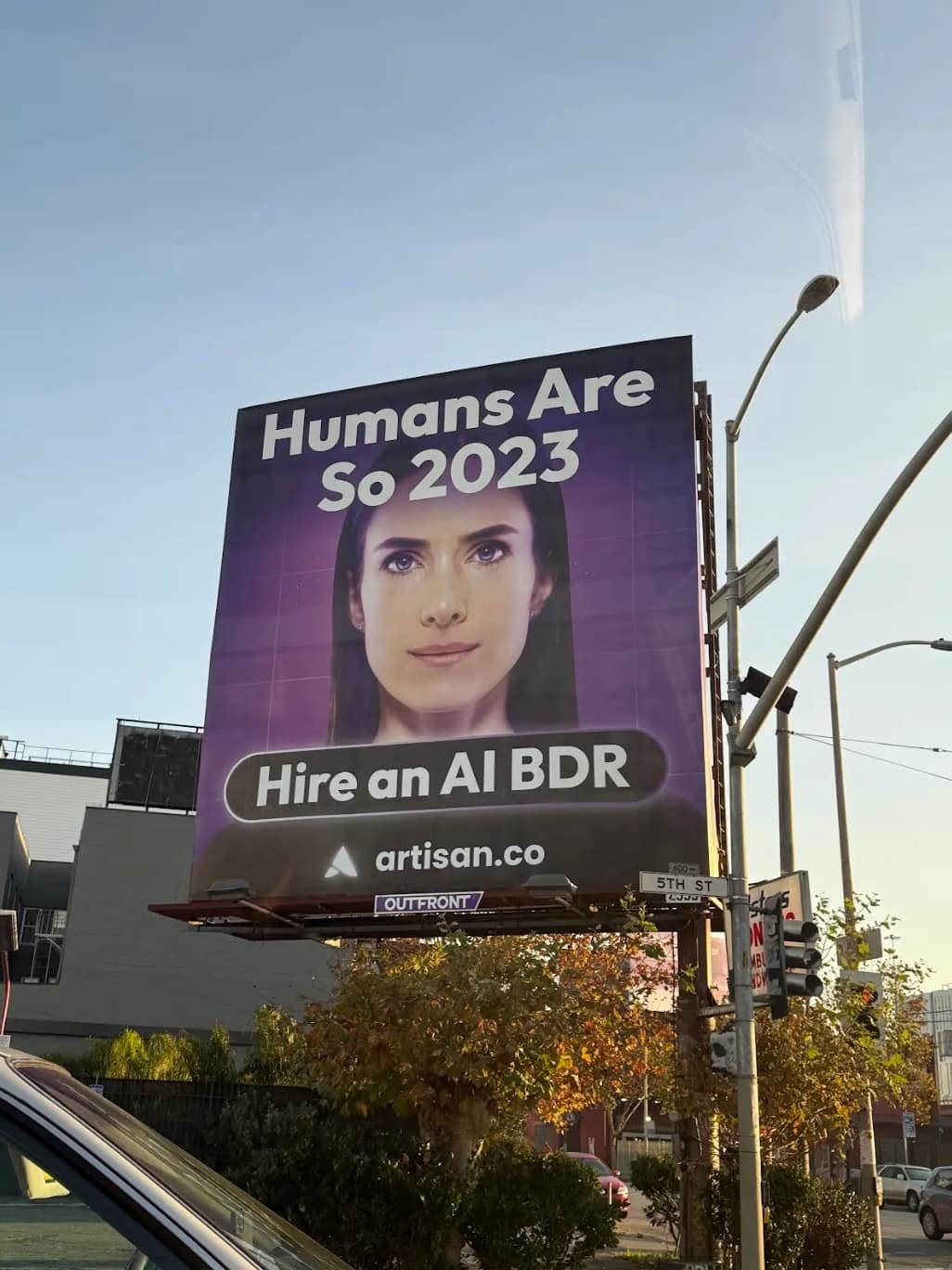Future-proofing your Software Engineering career
Practical strategies for engineering careers in the future
Today, we face a new wave of automation through Large Language Models (LLMs). The discourse around these tools often swings between extremes – either heralding the end of programming as we know it or dismissing them as merely sophisticated autocomplete. Both perspectives miss the mark.
Let's examine the reality of AI's impact on software engineering careers through a pragmatic lens, grounded in current technological capabilities and historical patterns of industry evolution.
Understanding current LLM capabilities
Before discussing career strategies, we need to accurately assess what LLMs can and cannot do. I've spent the last few years integrating various AI coding assistants into my work, and the results have been illuminating.
These tools excel at certain tasks. They can rapidly generate boilerplate code, translate between programming languages, and implement well-documented algorithms. When working with popular frameworks like React, they often produce serviceable code that requires minimal modification. For example, asking Claude Sonnet or GPT-4o to create a basic REST API and front-end will typically yield a working implementation, complete with error handling and basic validation. You may be doing this via a tooling layer such as Cursor, Copilot or Cline.
However, their limitations become apparent in more complex scenarios. Recently, I attempted to use various LLMs to help refactor a legacy system with complex business logic spread across multiple services. The tools consistently failed to grasp the implicit relationships between components and the subtle edge cases handled by the existing code. They generated plausible-looking but fundamentally flawed solutions that would have introduced serious bugs if implemented without careful review.
A particularly concerning pattern I've observed is how these tools can confidently produce incorrect or overly convoluted solutions. Junior developers, eager to leverage AI assistance, sometimes accept these outputs without sufficient scrutiny, leading to technical debt or security vulnerabilities. I've personally witnessed cases where junior engineers either implemented completely non-functional solutions or created unnecessarily complex implementations due to following AI suggestions without proper understanding. This reinforces the importance of strong fundamentals and critical review skills.
Has AI already started replacing Software Engineers?
An actual image recently taken in San Fransisco of "AI about to take your job"
Before diving into career implications, let's address the elephant in the room: after roughly two years of AI-assisted development tools, what's actually changed?
AI-assisted development has existed for over ~2 years now, but there's been NO broad example of job replacement with AI
Numerous start-ups are emerging with the goal of creating "AI engineers" (like Devin, Magic.dev, etc.)
Tools like GitHub Copilot, Claude, and Google's IDX are becoming mainstream
Platforms like Bolt.new and Lovable.dev serve specific use cases but haven't replaced traditional development
Importantly, there's been no empirical evidence of large-scale adoption leading to engineer replacement
This context is crucial for understanding how to adapt without overreacting. The reality is that while AI tools are transforming how we work, they're augmenting rather than replacing human engineers.
The Junior engineer's dilemma
Contrary to popular speculation, junior engineering roles are unlikely to disappear entirely. However, they will transform significantly. The traditional path of learning through implementing basic CRUD applications and simple features will evolve as these tasks become increasingly automated.
This evolution presents both challenges and opportunities for early-career developers. The bar for entry-level positions may rise, requiring stronger fundamental knowledge to effectively review and validate AI-generated code. However, this shift also means junior engineers can potentially tackle more interesting problems earlier in their careers.
Consider a typical junior task: implementing a new API endpoint following existing patterns. Previously, this might have taken a day of coding and testing. With AI assistance, the implementation time might drop to an hour, but the crucial skills become:
Understanding the existing system architecture well enough to specify the requirement correctly
Reviewing the generated code for security implications and edge cases
Ensuring the implementation maintains consistency with existing patterns
Writing comprehensive tests that verify business logic
These skills can't be learned purely through tutorial following or AI prompting – they require hands-on experience with production systems and mentorship from senior engineers.
Mid-Level engineers: The adaptation imperative
Mid-level engineers face perhaps the most significant pressure to evolve. Many of the tasks that traditionally occupied their time – implementing features, writing tests, debugging straightforward issues – are becoming increasingly automatable.
This doesn't mean obsolescence; it means elevation. The focus shifts from writing code to:
System Design and Architecture Instead of spending days implementing a new feature, mid-level engineers might spend that time designing robust systems that gracefully handle scale and failure modes. This requires deep understanding of distributed systems principles, database internals, and cloud infrastructure – areas where LLMs currently provide limited value.
Integration and Boundaries As systems become more complex, understanding and managing the boundaries between components becomes crucial. This includes API design, event schemas, and data models – all requiring careful consideration of business requirements and future flexibility.
Performance Optimization While LLMs can suggest basic optimizations, identifying and resolving system-wide performance issues requires deep understanding of the entire stack, from database query patterns to frontend rendering strategies.
Cross-functional Communication The ability to translate between business requirements and technical solutions becomes more valuable as implementation time decreases. Engineers who can effectively communicate with product managers, designers, and other stakeholders will become increasingly valuable.
Practical steps for career future-proofing
Based on these observations, here are concrete steps for maintaining and advancing your engineering career in an AI-augmented future:
1. Deepen your computer science fundamentals
Data structures and algorithms beyond the basics Distributed systems principles Database internals and query optimization Network protocols and security
This knowledge helps you understand the implications of AI-generated code and make better architectural decisions.
2. Develop system design expertise
Practice designing systems that solve real-world problems at scale. This includes:
Load balancing and caching strategies
Data partitioning and replication
Failure modes and recovery procedures
Cost optimization and resource management
These skills remain valuable regardless of how code is generated, as they require understanding business requirements and engineering tradeoffs.
3. Build domain expertise
Specialize in complex domains where human understanding remains crucial:
Generic domains:
Financial systems with regulatory requirements
Healthcare systems with privacy concerns
Real-time systems with strict performance requirements
Machine learning infrastructure
Software Engineering-specific domains:
Frontend Engineering: Master advanced state management patterns, web vitals optimization, modern build tools, and framework internals
Backend Engineering: Deep dive into database internals, distributed systems, and scalability patterns
Mobile Development: Platform-specific expertise in iOS/Android architecture patterns and performance optimization
DevOps: Container orchestration, cloud infrastructure design, and site reliability engineering
Security Engineering: Threat modeling, secure system design, and compliance frameworks
Domain expertise provides context that current AI tools lack and helps you make better decisions about where and how to apply them.
4. Master development operations
Understanding how systems run in production becomes more valuable as code generation becomes more automated:
Monitoring and observability
Performance profiling and optimization
Security practices and compliance
Cost management and optimization
5. Enhance communication skills
Requirements gathering and analysis
Technical writing and documentation
Project planning and estimation
Team leadership and mentoring
6. Use AI!
Remember that AI should be an integral part of your workflow, not something to resist. Practical ways to incorporate AI include:
Using AI for scaffolding initial code structures
Leveraging AI for quick prototypes and proof-of-concepts
Pair-programming with AI for faster debugging and problem-solving
Using AI to suggest optimizations and alternative approaches
Letting AI handle repetitive code patterns while you focus on architecture and design decisions
The Design Imperative: beyond pure engineering
There's a growing narrative that junior software engineers should "just quit" – that pure engineering skills will become obsolete as AI handles the implementation details. While the conclusion is overstated, the discourse about the importance of skills beyond engineering (like design) deserves examination.
Successful software creation has always required more than just coding ability. What's changing is not the death of engineering, but rather the lowering of pure implementation barriers. This shift actually makes engineering judgment and design thinking more crucial, not less.
Consider what makes applications like Figma, Notion, or VS Code successful. It's not just technical excellence – it's the deep understanding of user needs, workflows, and pain points. This understanding comes from:
User experience design thinking
Deep domain knowledge
Understanding of human psychology and behavior
System design that considers performance, reliability, and scalability
Business model alignment
The best engineers have always been more than just coders. They've been problem solvers who understand both technical constraints and human needs. As AI tools reduce the friction of implementation, this holistic understanding becomes even more valuable.
However, this doesn't mean every engineer needs to become a UX designer. Instead, it means:
Developing stronger product thinking abilities
Building better collaboration skills with designers and product managers
Understanding user psychology and behavior patterns
Learning to make technical decisions that support user experience goals
Balancing technical elegance with practical user needs
The future belongs to engineers who can bridge the gap between human needs and technical solutions – whether that's through developing better design sensibilities themselves or through more effective collaboration with dedicated designers.
Looking ahead: The next decade
The next decade of software engineering will likely see significant changes in how we work, but not necessarily in what we achieve. The fundamental challenges of software engineering – understanding requirements, designing scalable systems, maintaining reliability, ensuring security – remain largely unchanged.
What will change is how we approach these challenges. AI tools will become an integral part of our development workflow, similar to how git and continuous integration have become standard practices. The most successful engineers will be those who can effectively combine human insight with AI capabilities to deliver better solutions faster.
This doesn't mean becoming an AI researcher or prompt engineering expert. Instead, focus on building the skills that allow you to effectively leverage these tools while maintaining the judgment to know when not to use them.
Conclusion
The future of software engineering careers lies not in resisting AI tools but in understanding how to leverage them effectively while developing skills that remain uniquely human. Focus on building expertise in areas where AI currently struggles: system design, architectural decisions, and translating business requirements into technical solutions.
Remember that software engineering has always been about problem-solving first, coding second. As coding becomes more automated, the ability to understand and solve complex problems becomes even more valuable. The most successful engineers will be those who can effectively combine human insight with AI capabilities to deliver better solutions faster.
The key is to remain pragmatic and focused on delivering value. Learn to use AI tools where they make sense, but don't rely on them as a crutch. Continue developing your fundamental skills and domain expertise. And most importantly, remember that our field has always been about continuous learning and adaptation – this is just the latest chapter in that ongoing story.
The future belongs not to those who can generate the most code, but to those who can best understand and solve real-world problems while leveraging all available tools – including AI – appropriately.
With special thanks to Hassan Djirdeh for his review and feedback.









Thanks a lot Addy for publishing this post this week. Your post brings hope to software engineers, perfect for this time of the year ☺️.
Do you have any recommendations for improving on domain expertise for frontend?
I also saw posts saying frontend engineers won’t be needed 🤔 and will evolve to full stack or product engineers. I guess full stack will be needed mostly for startups as always and since there might be more startups thanks to AI it might be more demanded than before. What do you think? Should we still specialize in depth domain knowledge of only one software engineering role?
This is indeed helpful and timely.
I have had this dilemma on over relying on AI but reading this helps clarifies everything and gives valuable knowledge in leveraging AI in my career effectively.